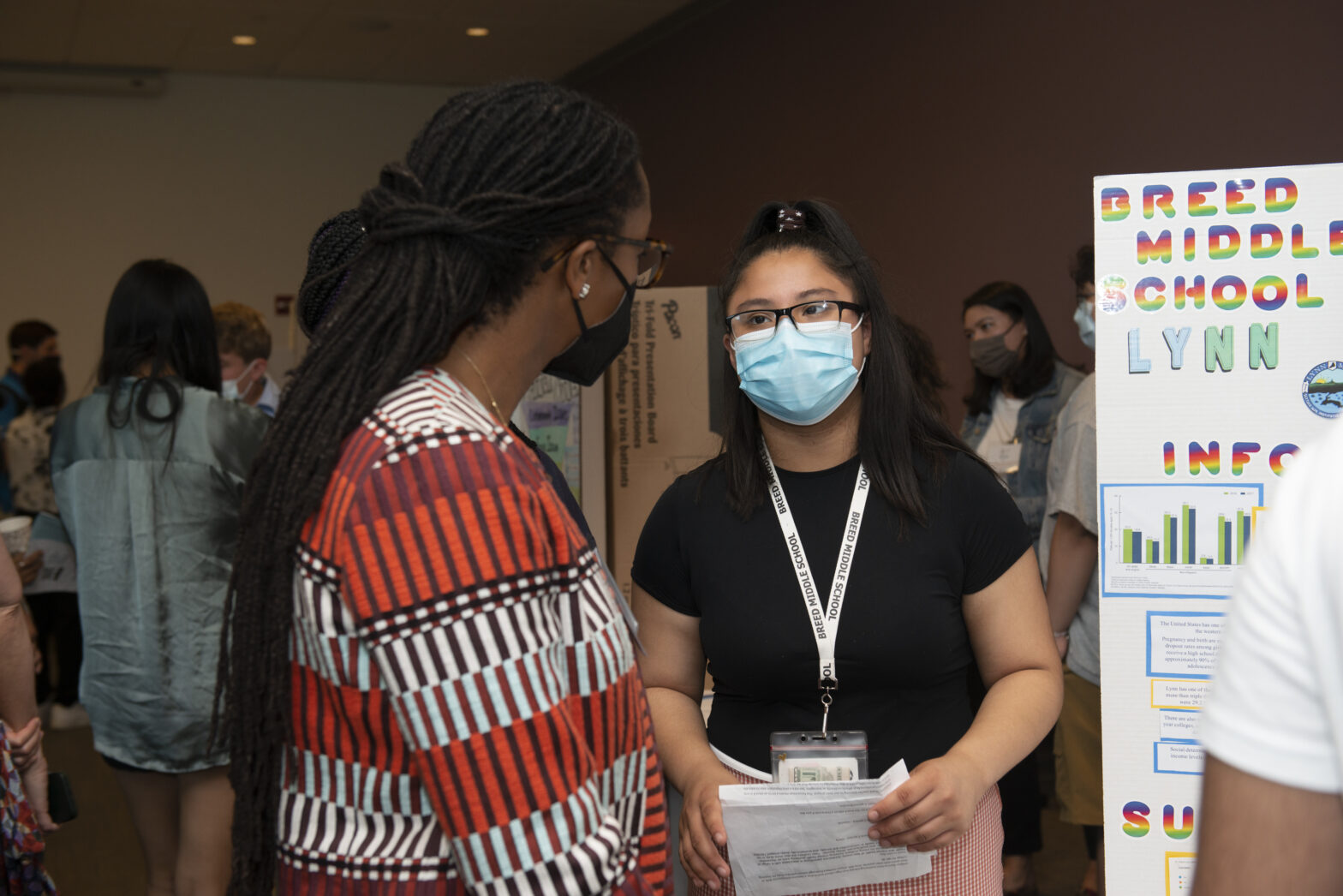written by Elizabeth Clay Roy, Generation Citizen CEO
Hope is like oxygen for democracy, filling the lungs of civic engagement and sustaining the democratic spirit. Without it, apathy and cynicism can become protective stances in an unpredictable world. I’ve been thinking a lot about what it takes to foster civic hope, especially during a year that we expect will require us to draw on reserves of it.
At Generation Citizen, we have the opportunity to help students feel a sense of civic connection and hope in their communities. By teaching them how local government works and showing them how they can become civic problem solvers today, our students become true agents of change. The guidance of supportive teachers, school administrators, and community leaders is a very important part of the process for students to develop civic knowledge and apply civic skills.
It isn’t enough for people to hear generally that civic engagement matters, youth need to be invited and encouraged individually. CIRCLE, the Center for Information & Research on Civic Learning and Engagement, is a non-partisan, independent research organization focused on youth civic engagement in the United States. CIRCLE’s research notes that “students who had not received encouragement to vote from teachers in high school were more than twice as likely to agree with the statement “Voting is a waste of time” as those who had been encouraged: 26% vs. 12%
This is on my mind as we recognize the invaluable impact of mentoring relationships through National Mentoring Month in January. We often think about mentorship as important for academic and career success, but the same principles apply to guidance to prepare young people for active citizenship.
Civic mentors can be educators, faith leaders, classmates, elected officials, neighbors – anyone who helps fan someone’s civic spark into a flame. It requires both the inspiration and the practical guidance to help someone take a step they haven’t yet taken to advance a cause that matters to them.
Civic mentors inspired me to see myself as not merely a witness, but as an actor. My first critical civic mentor was my high school history teacher who affirmed cultural pride as well as my emerging political consciousness. He encouraged me to speak out about my values and created spaces for students to grow. His guidance over the years helped me to grow from a shy pre-teen to a student leader by the time I graduated, and he mentored hundreds of students in his decades as an educator.
A second civic mentor inspired me up close, even if she never knew the impact she made. I was a college student when Amadou Diallo, an unarmed Black man, was shot by police. One of the student leaders on campus, adrienne maree brown helped organize students to participate in major citywide protests for justice and accountability. Social justice animated my conscience, but having a fellow classmate demonstrate courage and connect us to community activists made civil disobedience feel both possible and necessary. She has continued her path to become an activist, author, and healer who has guided thousands of people.
Civic mentors are ideal up close, where they can offer not only inspiration about the why of civic engagement, but tangible guidance about the how. With proximity to those who inspire us, we have the chance to meet eye to eye, and the mentor can show that “the power in me, sees the power in you”. In 2024, let’s be open to being both mentor and mentee, and encourage each other to bring our voices forward.
Looking for an opportunity to serve? We would welcome you as a Community Advisor at Civics Day.
A sign-up link will be available in the coming week for our Spring 2024 Civics Days. We look forward to working alongside you to continue pushing civic mentorship forward.
